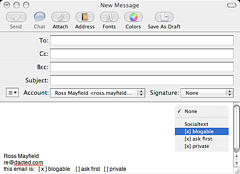4. Paco has emailed Sonia
Dear Sonia,
How are you? I hope you are all OK. I'm writing in English to show you how much I've learned!
I am having a great time here in Edinburgh. I have visited many places and I have tried some typical Scottish dishes. Haggis is the most typical national dish, made of minced sheep's liver, heart and lungs, but I didn't like it very much. However I tried some cakes which I loved!
I have made a Scottish friend! His name is Paul and we get on really well. I've met him twice and I've also met his family. They are all so friendly! But it's not easy to understand their Scottish accent. He is spending a few days in Edinburgh but he studies in Cardiff. He is going back tomorrow, so we've decided to meet again there after my travelling in the Scottish Highlands.
Last night I stayed at his parents' house. They invited me for dinner (which was lovely) and we had a great time. We spoke a lot and, after a couple of hours, their accent became easier to understand. In the morning we got up a bit late and his mum prepared for us what they call 'brunch', which is something between breakfast and lunch. I had a typical British breakfast with eggs, bacon, sausages, tomato and some bread. It was nice!
I must rush now because I'm going to meet Paul before I leave Edinburgh.
I hope to hear from you soon,
Take care,
Paco
 |
| By jimmyroq, C. Commons |
Verdadero Falso
Verdadero Falso
Verdadero Falso
Verdadero Falso
There are a few 'rules' when writing informal letters or emails in English:
- You can start with formulas such as: Dear (followed by the first name of the addressee), Hi...
- Some useful phrases to start after the salutation: Thank you for your letter, Nice to hear from you, I'm sorry I haven't written before but...
- You can finish with formulas such as: Please write back a.s.a.p. (as soon as possible), I'm looking forward to hearing from you/seeing you, Take care, Speak soon, I hope to hear from you soon, Love (this indicates a very close relationship), Best wishes...
- Always write commas after these formulas.
- Contractions ('ve, 's, 'm, etc) are perfectly acceptable in informal letters.
Do you know the complete word for 'email'? Probably you know this, it's 'electronic mail' and nowadays the spelling 'e-mail' is becoming more used.
There are a lot of word pairs in English which are spelled the same but pronounce differently if the word is a noun or a verb. The tendency is that, for the noun, the accent falls on the first syllable, and for the verb, on the second. In this case, the accent is on the first syllable whether it is a noun or a verb.
'Email' was originally used as a noun. However, its extensive use has made it a verb too.
I sent an email to Sonia = I emailed Sonia

By Ross Mayfield, C. Commons
Now it's time to write a bit!
Taking into account Paco's email to Sonia, how to begin and end an informal letter, and the difference between Past Simple and Present Perfect Simple, write an informal email of about 80-100 words. You can choose the addressee and the topic!
 |
| By Olivander, C. Commons |